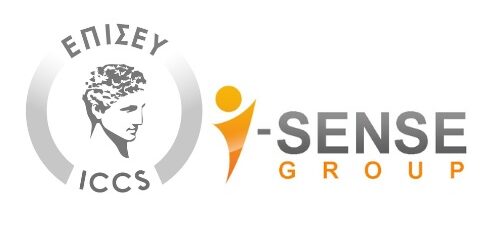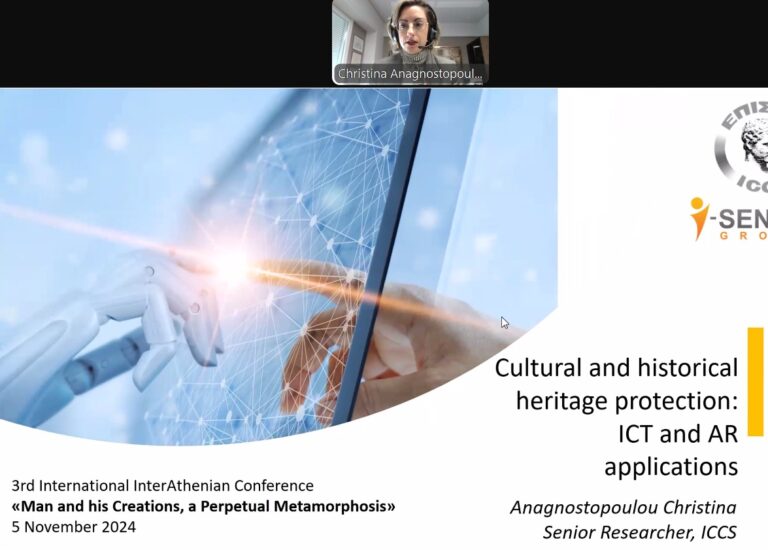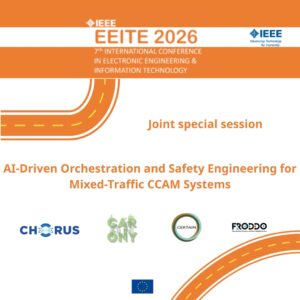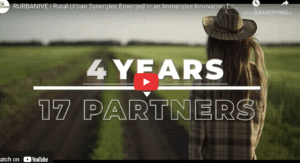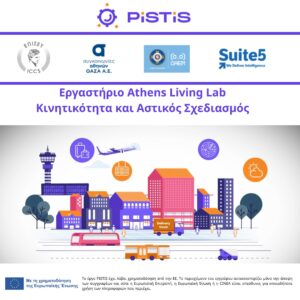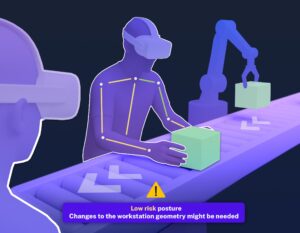At the 3rd International InterAthenian Conference, titled “Man and his Creations, a Perpetual Metamorphosis,” held on November 5, 2024, Christina Anagnostopoulou, Senior Researcher at the Institute of Communication and Computer Systems (ICCS), delivered an insightful presentation on “Cultural and Historical Heritage Protection: ICT and AR Applications.” Her presentation emphasized the innovative role of Information and Communication Technologies (ICT) and Augmented Reality (AR) in preserving and promoting cultural heritage. She detailed how these technologies enable interactive experiences that bridge the past and present, allowing users to immerse themselves in historically rich environments through their smartphones and other digital devices. This approach fosters public engagement with heritage sites, promotes sustainable tourism, and aids in education, enhancing visitors’ understanding of cultural contexts.
Anagnostopoulou outlined several applications within the APSIM project, including AR/VR experiences that digitally reconstruct historical sites and artifacts, offering interactive, gamified elements to encourage learning and enjoyment. She highlighted specific case studies such as the use of AR in iconic sites like Delos, Dion and the Epigraphic Museum of Athens, where application users and visitors can admire selected monuments in their original forms.
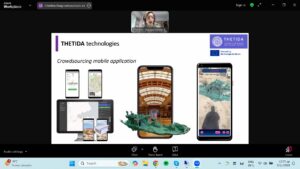
Christina Anagnostopoulou further expanded on the THETIDA project, showcasing its cutting-edge approach to safeguarding cultural heritage against the threats of climate change and environmental stressors. THETIDA integrates advanced ICT solutions like remote sensing, AR applications, and in-situ sensing technologies to monitor and preserve vulnerable coastal and underwater heritage sites. Through detailed mapping and the use of smart buoys, micro-weather stations, and autonomous underwater vehicles, the project tracks changes in coastline erosion, water quality, and environmental degradation. These tools provide critical data for assessing the impact of factors such as rising temperatures, water acidification, and human activities on heritage sites, enabling targeted preservation strategies.
The project’s crowdsourcing mobile app further engages communities, encouraging them to actively participate in documenting and protecting cultural heritage. This aspect of THETIDA aligns with the EU Green Cluster on Cultural Heritage, promoting collaboration among researchers, policymakers, and the public to develop sustainable and resilient cultural tourism. Christina, underscored THETIDA’s potential to set new standards in cultural heritage preservation by combining scientific innovation with community involvement, emphasizing that heritage is an evolving legacy that requires proactive measures for future generations.
Learn more about APSIM at https://www.apsim-project.eu/ and THETIDA at https://thetida.eu/#/home
